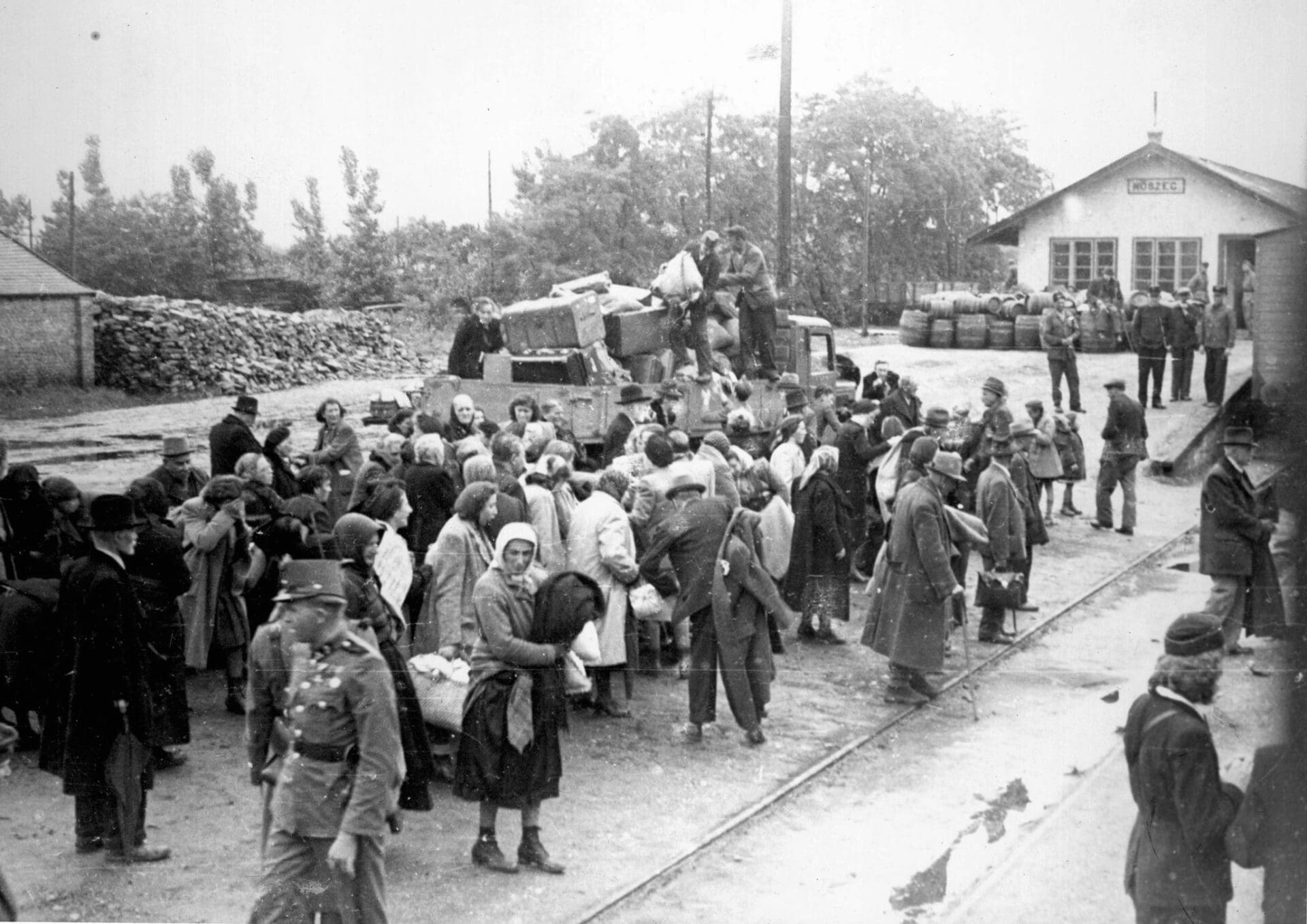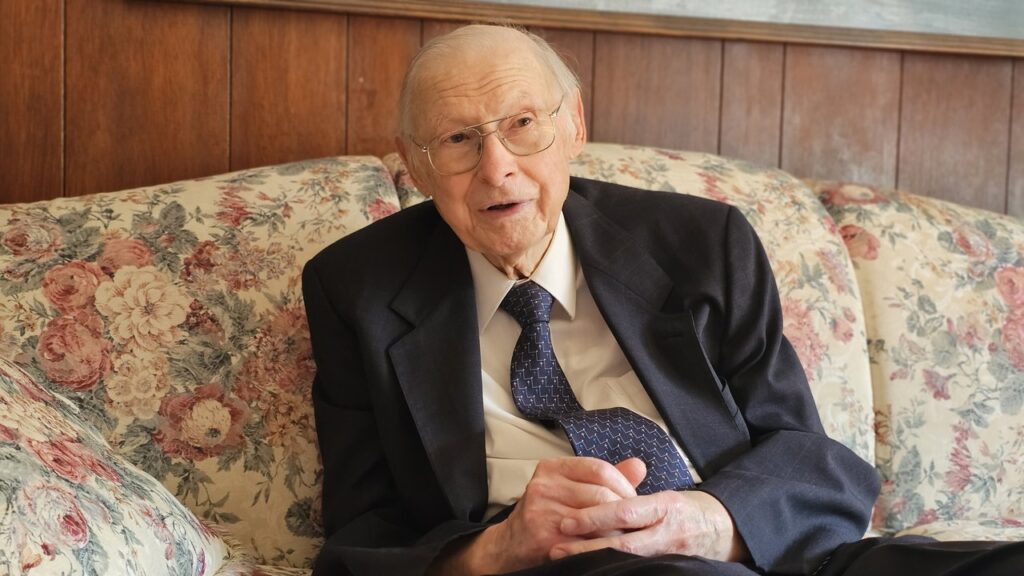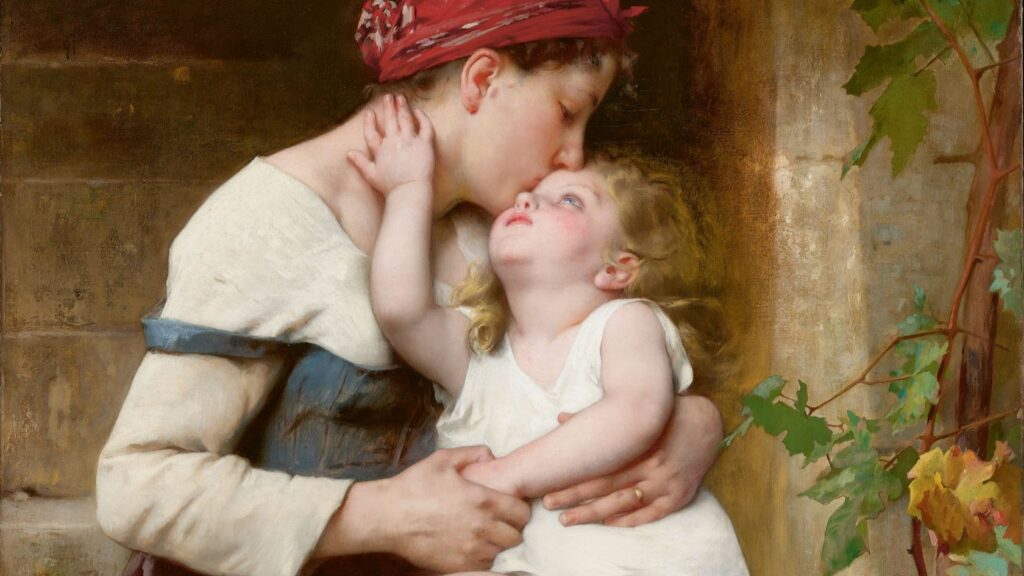In our previous article, we looked at the circumstances of the establishment of the so-called ‘Jewish police’ in Hungary during the German occupation of 1944. We know of a few ghetto documents that attempt to clarify the relationship between the Hungarian state police and the Jewish police. The Jewish police were used for quite a variety of tasks, the maintenance of order being the rarest of these. In some places they supervised cleanliness, cared for the sick, while in others they had firefighting duties, or were used as barbers shaving the Hungarian gendarmes. One anti-Semitic newspaper wrote about the Győr ghetto that the Jewish police were tasked with breaking up fights, with the main messages of the article clearly being that the evil Jews cannot live in peace even with each other, so this source should be read especially critically.[i] In the Nyíregyháza ghetto, the Jewish police were responsible for waking up the residents in the morning and ushering the new residents into their houses. The Jewish police also checked the purity of the water in the internment camp in Simapuszta. According to the report of the Chief of Police of Ungvár (Uzhhorod, Ukraine) dated 23 April 1944, during the relocation of rural Jews to the Ungvár ghetto, the Jewish police cooperated with the Hungarian police in putting up the new arrivals in tents.[ii]
There was ‘no privilege’ that went with being in the Jewish police
The question that cannot be avoided is whether being a Jewish policeman in the rural ghettos or internment camps came with any kind of privilege. András Weiss convincingly asserted to the author of these lines that there was ‘no privilege’ that went with being in the Jewish police.[iii] His statement about the Szombathely ghetto, which was a generally well-equipped ghetto, may have been true. However, in other ghettos or internment camps—for example in Simapuszta—Jewish policemen supervised the distribution of a significant part of the food parcels, and occasionally of valuable batches of alcohol and cigarettes as well. With these, they were able to supplement their own food rations and obtain advantage. Some survivors also mentioned the special attention of Jewish women towards Jewish policemen, primarily due to a phenomenon also not unknown in concentration camps, namely that food supplies or protection could be obtained in exchange for intercourse. However, with the prominent role came greater responsibility. According to the recollection of a survivor, in the Vác ghetto, the authorities ‘scared them [the Jewish policemen] to death by telling them that they were responsible for everything and everyone, and if the slightest thing happened, they would be shot in the head.’[iv]
It is important to point out that the anti-Semitic authorities were just as cruel to Jewish policemen as they were to any other Jew. It is known that the chief of the Jewish police in Munkács (Mukachevo, Ukraine), Lajos Berkovics, was badly beaten. According to a witness, in the Ungvár ghetto, ‘a Jewish policeman was reporting to an SS, but he could not make himself understood [in German], and the SS soldier slapped him across the face.’[v] Some Jewish policemen, on the other hand, were accused of beating their conationals. Special mention should be made here of the Jewish police in Kassa (Kosice, Slovakia) and the Jewish police in Kolozsvár (Cluj, Romania), which received a lot of criticism in Jewish memoirs. However, the accusers did not consider that the Jewish police members themselves might have acted under pressure: according to the testimony of a survivor from Kolozsvár, in the ghetto Jews were forced to beat each other to entertain the gendarmes. The case of Mrs Sándor Berendi, a Christian woman from Szatmárnémeti (Satu Mare, Romania), who regularly took food to the Mátészalka ghetto in exchange for money, and who was informed on by a local Jewish policeman, also stands out. It needs to be added, however, that the Jewish policeman must have been under severe pressure to report ‘unlawful’ activities, since, unlike the staff of Hungarian law enforcement agencies, he was threatened with death should he not properly comply with his duties.
The Jewish police in Sátoraljaújhely tried to provide as much personal space as possible for the residents of the ghetto
It is also known that many Jewish policemen tried to use their special position to help their fellow Jews. Miklós Vértes (Weiss), who was a member of the Jewish police as a young boy at the time, went to downtown Sátoraljaújhely from the local ghetto every day to take back food, newspapers, other necessary supplies and information. The Jewish police in Sátoraljaújhely also tried to provide as much personal space as possible for the residents of the ghetto: ‘Our main goal was to circumvent the orders and cram as few people as possible into the crowded spaces. Mothers and their children were given separate rooms and we did our best to avoid chaotic conditions’.[vi] Some Jewish policemen also tried to recover the personal belongings of the ghetto residents confiscated by the Hungarian authorities, and also to help some Jews pass the strict personal checks. The Jewish policemen of the internment camp in Simapuszta smuggled some of the packages confiscated by the gendarmerie into the camp at dawn. The Jewish policemen in Aknaszlatina (Solotvino, Ukraine) also secretly bought food for the Jews who were not allowed to leave the ghetto.
It is important to emphasise that resistance was just as difficult for Jewish policemen as it was for other Jews or the non-Jews. The Jewish police in Ungvár might have been armed with batons—but the Hungarian state police had guns. As we have seen, the Jewish policemen were mostly quite young, as the strongest adult men were doing military labour service. The possibilities of resistance or hiding were exactly the same as those of the ghetto residents who did not have a special role—hiding or resisting was punishable by death. In the Munkács ghetto, a tailor named Hönig was executed for trying to hide in a closet, and in the Sátoraljaújhely ghetto, a young Jew beat a gendarme because he had attacked his father. In retaliation, the entire Jewish family was deported.
As a survivor from Sátoraljaújhely pointed out: members of the Jewish police ‘obviously could not do anything against the attacks of the gendarmerie’.[vii]
[i] Új Magyarság, 18 May 1944.
[ii] Yehuda Spiegel (ed.), Yahadut Ungvár-Uzshorod, Tel-Aviv, J. Spiegel, 1993, 36.
[iii] Weiss András’s letter to the author, 31 Oct. 2019.
[iv] DEGOB, 3554. (http://www.degob.hu)
[v] DEGOB, 1852.
[vi] Meir Sas (ed.), Korot yehuda mechoz Zemplen, Toronto, Memorial Book Committee, 1986, 173-174.
[vii] DEGOB, 124.








